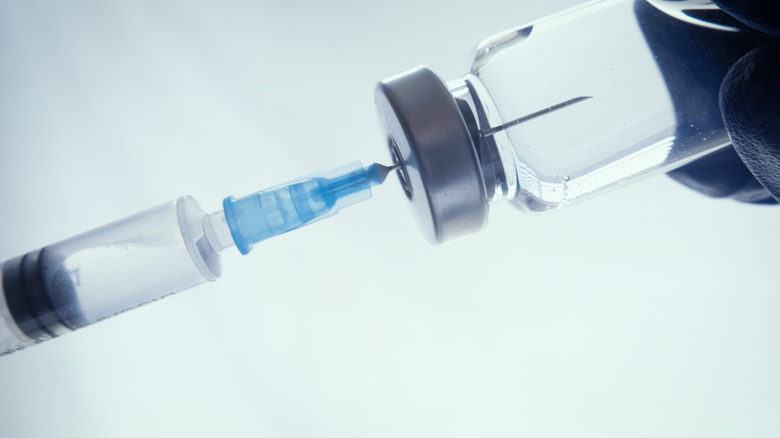Do Vaccines Cause Autism?
For a number of years, the fear that childhood vaccines can cause autism has run rampant. You might have heard this from a friend, mentioned on TV, or referenced in an article — but can vaccines really cause autism, and how do we know?
First, it's important to understand how vaccines work. The Centers for Disease Control and Prevention (CDC) has a recommended immunization schedule for children from birth to 18 years, which experts approve using scientific data each year (via the American Academy of Pediatrics). These vaccines either contain a weakened form of a virus, a small piece of a germ, a virus that's been killed, or a weakened toxin caused by bacteria. These can't get you sick, and instead teach your immune system how to protect you from the disease. Once the vaccine does this, it leaves the body. Usually, within a week or two, immunity begins to develop. Vaccines help prevent diseases like polio, diphtheria, and measles, which are largely nonexistent, thanks to modern medicine.
Some vaccines contain a small number of aluminum salts, which allow for lower doses to be given to children — it's even less than you'd typically consume in daily amounts of food and water. They also contain preservatives, which help keep germs out.
There's no link between autism and vaccines
Back in 1998, a small study suggested there could be a link between vaccinations and autism spectrum disorder, a developmental disorder that can affect how people relate to others (via Mayo Clinic Health System). However, that study was soon withdrawn after further review, and the doctor who performed the study lost his medical license due to altered information. Despite this, many people got the idea that vaccines can cause autism, sparking fear.
A 2015 large-scale study that was published in the Journal of the American Medical Association analyzed health records of 95,727 children who received the measles, mumps, and rubella (MMR) vaccine and had an older sibling. Researchers found that getting the MMR vaccine didn't have any impact on the risk of developing autism, whether or not their older sibling had it. Other smaller studies have also debunked this connection following the 1998 study.
Some children can't be vaccinated because of medical concerns, which makes it even more important for healthy children to receive vaccines (via the Mayo Clinic Health System). When all children who are able to get vaccinated do so, herd immunity develops, which protects those who are at risk and can't get vaccinated.


